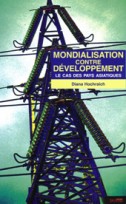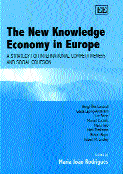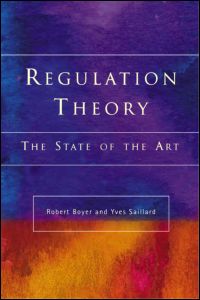dans Combemale Pascal, Piriou Jean-Paul (Dir.), Sciences économiques et sociales : Nouveau manuel, 3e édition, La Découverte, Paris, 2003, p. 207-216.
dans Combemale Pascal, Piriou Jean-Paul (Dir.), Sciences économiques et sociales : Nouveau manuel, 3e édition, La Découverte, Paris, 2003, p. 607-615.
L’hypothèse d’une prochaine convergence des capitalismes et des régimes de croissance est improbable
Dans Le nouvel état du monde. Les idées-forces pour comprendre les nouveaux enjeux internationaux, La Découverte, Paris, 2002, p. 134-139.
dans Diana Hochraich, Mondialisation contre développement : Le cas des pays asiatiques, Editions Syllepse, Paris,
2002, p. 7-34.
Mondialisation contre développement : Le cas des
pays asiatiques
, Editions Syllepse, Paris, 2002, p. 7-34.
dans Maria João Rodrigues eds, The New Knowledge Economy in Europe, A strategy for international competitiveness and social cohesion, Edward Elgar, Cheltenham, 2002, p. 146-202.
The New Knowledge Economy in Europe, A strategy for international competitiveness and social
cohesion
. Edward Elgar, Cheltenham, 2002, p. 146-202.
(avec Michel Freyssenet), in Rosangela Lodigiani, Monica Martinelli, Dentro e oltre i post-fordismi: impresa e lavoro in mutamento tra analisi teorica e ricerca empirica, Vita e Pensiero, Milan, 2002, p. 155-175.
Dans Shibuya Hiroshi, MARUYAMA Makoto, YASAKA Masamitsu (Eds) Japanese Economy and
Society under Pax-Americana, University of Tokyo Press, Tokyo, 2002, p.27-74.
dans Lian Begg (ed.) Europe: government and money: Running EMU, the challenges of policy co-ordination, Federal Trust for Education & Research, Londres., 2002, p. 39-54.
dans Boyer Robert et Saillard Yves eds., Régulation Theory : The State of The Art, Routledge, London, 2001, p. 231-237.
dans Boyer Robert et Saillard Yves eds., Régulation Theory : The State of The Art, routledge, London, 2001, p. 320-333.





